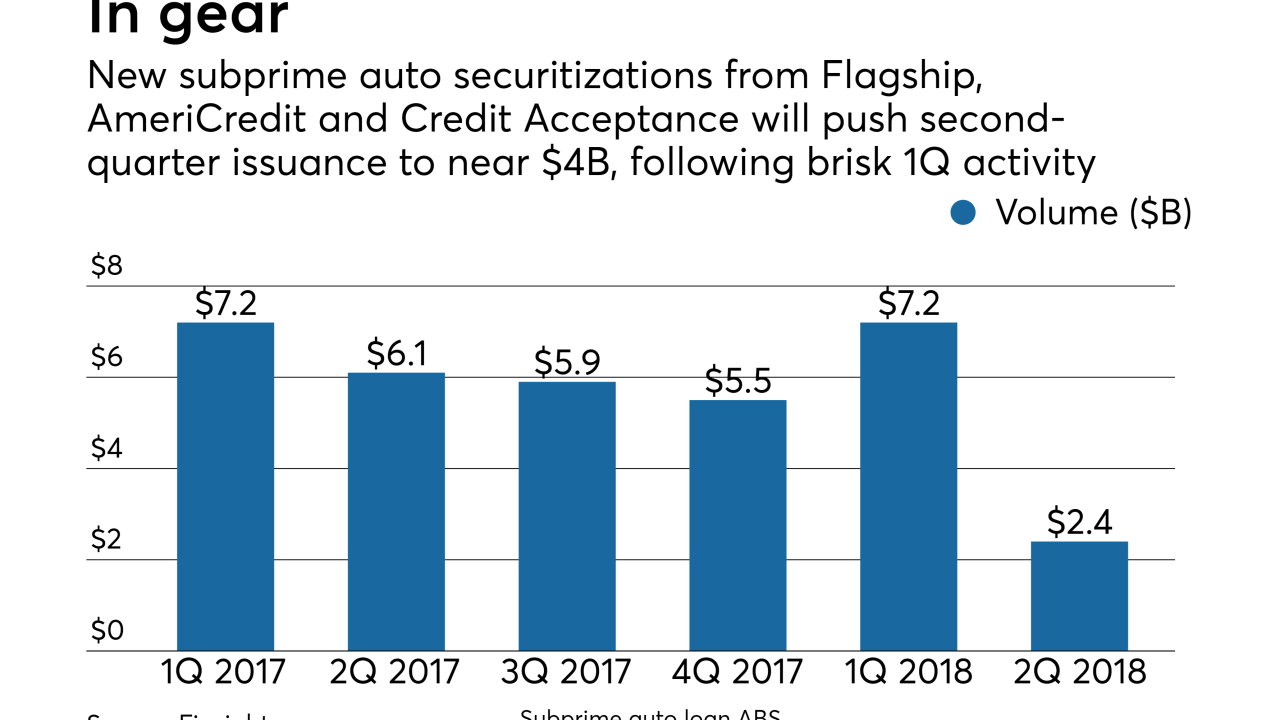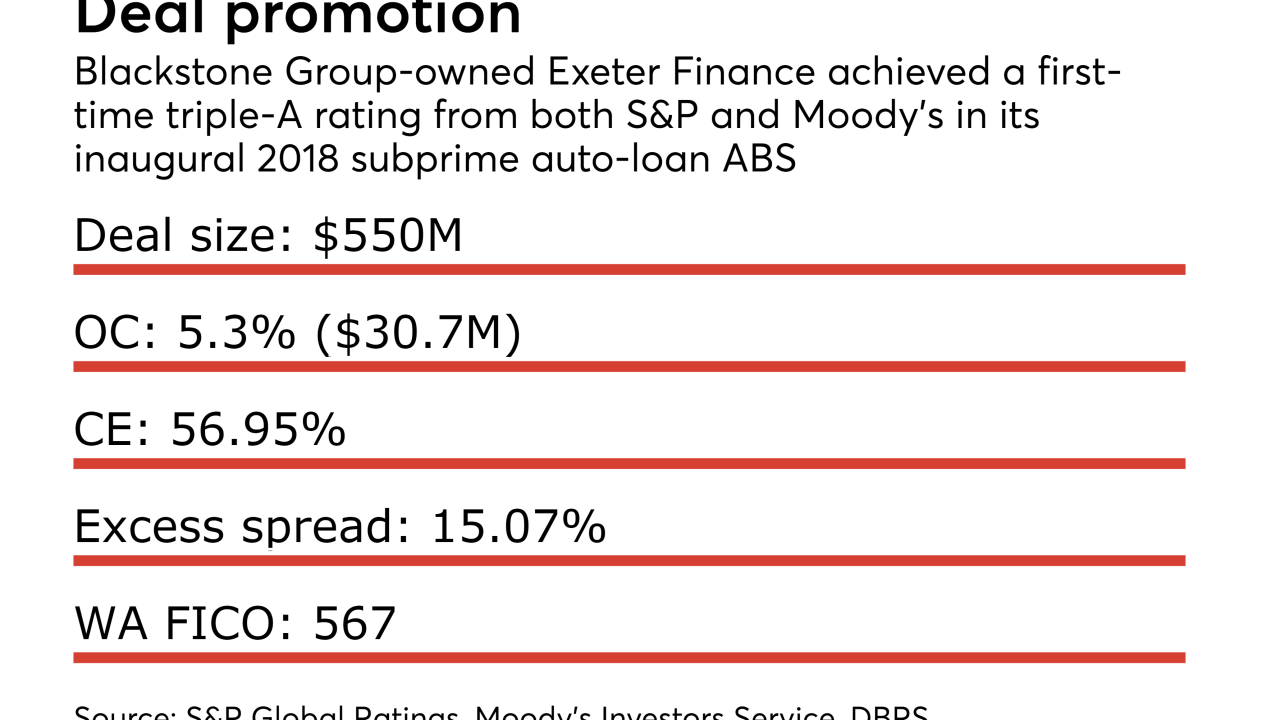-
The Dallas-based lender, a unit of the global banking giant Banco Santander, was able to lower credit enhancement on the senior notes to 63.55% from 65.25% on the previous deal in February.
May 10 -
AmeriCredit returns to securitization for the first time since November with a $1.1 billion deal, while Flagship's $223 million deal, its second of 2018, takes a step back in collateral quality.
May 9 -
The senior tranche of Credit Acceptance Auto Loan Trust 2018-2 benefits from initial credit enhancement of 51.61%, up from 49.93% in a February deal; it comes from additional subordination.
May 9 -
Auto lenders would be well advised to keep up their guard as states — particularly blue ones — take steps of their own to crack down on what they see as abusive practices.
May 7 -
While DBRS maintained a rating of AA for the Lendmark Financial's first ABS of 2018, S&P issued an A rating after estimating higher net losses on the underlying subprime accounts.
May 4 -
RAC King (d/b/a American Car Center) has expanded rapidly since being acquired in a 2016 leveraged buyout; now it's bundling most of its portfolio into collateral for bonds.
April 25 -
The $185 million transaction features a higher exposure to borrowers entering bankruptcy than the sponsor's 2016 deal; it's also more seasoned, since it recycles 2014 collateral.
April 19 -
Higher LTVs and fewer low-risk, new-car loans trumped the recent decline in managed-portfolio delinquencies and improved ABS performance since 2015.
April 16 -
The subprime auto lender failed to disclose that it received fees for referring borrowers to CarMax, the used-car dealer, according to California's financial regulator.
April 6 -
But GMF's deeper dive into long-term loans for a pool increasingly dominated by pricier trucks and SUVs caused a slight bump in expected ABS credit losses.
April 5 -
The performance of outstanding transactions issued via the Capital Auto Receivables Trust platform is weakening, so rating agencies are demanding additional investor protections.
March 8 -
Credit enhancement on the senior notes has risen to 36.25% from 28.7% to account for higher expected losses on the collateral; Kroll's base-case range is for 6.75% to 8.75% over the life of the deal.
March 8 -
DriveTime's improving loss performance in recent securitizations allowed it to relax the enhancement levels on its first securitization of the year.
March 2 -
Despite riskier terms, rising delinquencies and falling used car values, investors keep buying bonds backed by prime and subprime auto loans and leases.
February 28 -
The three offerings push the first-quarter volume of subprime auto loan asset-backeds past $5 billion, an indication of unwavering demand for the risky asset class.
February 9 -
The Detroit company recorded an 11% increase in car loans and leases originated during the fourth quarter, as well as a jump in yields. Ally appears to be benefiting from Wells Fargo's substantial retrenchment in auto lending.
January 30 -
The credit quality of the collateral appears to have improved, but investor protections have also decreased; as a result, Kroll is only assigning an 'A' to the senior tranche of notes.
January 26 -
The Salt Lake City-based lender homes in on troubled borrowers whose subprime status is primarily tied to a recent bankruptcy protection filing.
January 23 -
The Irving, Tex.-based specialty lender boosted senior-note credit enhancement levels and has stabilized portfolio losses to break the AA ratings cap on its deals, according to S&P Global Ratings.
January 19 -
Improved underwriting allowed the lender to secure AAA ratings despite offering the lowest credit enhancement on senior SDART notes in three years.
January 11

















